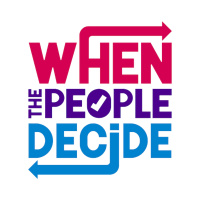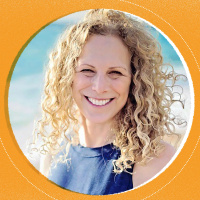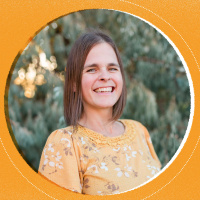Sinopsis
Smart, informative conversations and interviews that go beyond mere headlines and sound bites. New episodes Monday through Friday at 5 pm Eastern.Email the show
Episodios
-
Why We’re So Anxious About Retirement in America – And How We Can Fix It
05/08/2024 Duración: 54minMost Americans are anxious about when – or even if – they’ll be able to retire. And we’re not wrong. Social Security is on shaky footing. Half of Americans on the cusp of retirement have no money saved for it. This isn’t how retirement in America was supposed to work. But 40 years ago, Congress shifted the US away from employer pensions and toward a do-it-yourself system based on 401K retirement saving plans. It’s not going well. In this episode we get to the bottom of why so many Americans are unable to retire comfortably and end up, instead, living in poverty or working well past age 70. And we’ll learn what we can do on an individual and national level to improve retirement in America. Podcast Guests: Teresa Ghilarducci, professor of economics at the New School for Social Research, author of Work, Retire, Repeat: The Uncertainty of Retirement in the New Economy (https://teresaghilarducci.org/) Aubrey Johnson, 24, recent college graduate Heather Sheffer, 45, self-employed Mike Cundall, 50, philosophy
-
American roads are dangerous. How can we make them safer?
22/07/2024 Duración: 54minCompared to other wealthy nations, America has twice as many traffic deaths per capita. And in recent years, pedestrian and cyclist deaths have spiked. Experts say road design plays a big part in this. The most dangerous roads are “suburban arteries” that are often 5 or 6 lanes wide, with long distances between traffic lights where pedestrians can cross. On this episode of the podcast, we explore why American roads are designed almost exclusively for vehicles and what it would take to make them safer for people on foot and bicycle. Can streets allow good flow for vehicles, but still have bike lanes and safe crossing options for pedestrians? Cars these days are supercomputers on wheels – could technology solve this problem for us? Podcast Guests: Lizi Rahman, mother of Asif Rahman and member of Families for Safer Streets (https://www.familiesforsafestreets.org/) Angie Schmitt, author of “Right of Way: Race, Class, and the Silent Epidemic of Pedestrian Deaths in America” (https://usa.streetsblog.org/author/a
-
Inside the Changing Role of Fathers in America
08/07/2024 Duración: 53minWhat does it mean to be a father in 2024? In most U.S. households today, the role of fathers is changing. The “primary breadwinner dad” is increasingly rare, while the "primary caregiver dad” is becoming more common. One-in-five stay at home parents in the US is a father. And dads are generally doing a lot more childcare and housework than their fathers and grandfathers did. But women still do twice as much housework as their husbands, so it’s not uncommon to see tempers flare online when fathers get praised for parenting while mothers don’t. How are American families navigating these changings? In this podcast episode, we talk with a working father who wanted to be more involved than his own father – but still had to overcome some biased assumptions about household duties. We talk to a stay-at-home dad about the decision he and his wife made more than a decade ago to have him be the primary caregiver for their children. And then, a single father with full custody of his three young kids talks about what the
-
Why America's Childcare Crisis is an Equation We Can't Seem to Balance
24/06/2024 Duración: 54minMore than two-thirds of children under the age of 6 in the U.S. live in a household where all available parents work. But in most communities, there’s a shortage of slots in childcare centers and home-based providers. Because of unreliable childcare, as many as 100,000 Americans are forced to stay home from work at least once a month, according to the U.S. Bureau of Labor Statistics. That's not to mention the cost, which eats up about 13 percent of an American family's income on average, sometimes rivaling what they pay for food, utilities, or even rent. If there's so much demand for childcare in America, why aren't entrepreneurs flocking to meet that demand? The bottom line is the numbers don't work. In this episode, we’re exploring why America’s childcare crisis is an equation we can’t seem to balance and what it means for families and communities, including those of us who don't need or want childcare. We’ll tackle the interesting history of childcare with a policy expert, get an inside look with a child
-
Is Our Perception of Crime in America Accurate?
10/06/2024 Duración: 54minAmericans have a perplexing perception of crime. One in three Americans report watching, listening, or reading true crime on a weekly basis. But our fixation on crime goes deeper than entertainment. Both Republicans and Democrats consider violent crime an increasing problem. But most of us are safer today than we’ve ever been. Violent crime in America is down 50% since the 1990s. What’s driving the disconnect in our perception of crime? And what consequences does it have for our communities? Where might be a better place to direct our attention? On this podcast episode, we talk to a devoted fan of true crime who has also studied the effect it has on people. A leading research on crime and public perception in America explains how the 9/11 terror attacks fueled the disconnect in how safe Americans are and how safe they feel they are. We also speak with a survivor of intimate partner violence who created an organization to educate people about domestic and intimate partner violence, which pose a far greater th
-
Violence, Opioids, Loneliness, Obesity - The Pros and Cons of Treating Social Issues as Epidemics
27/05/2024 Duración: 54minThese days anything that's widespread might be called an "epidemic." Violence, obesity, opioids, even loneliness. But in the public health space, the label "epidemic" carries special significance beyond that - it's a disease that's widespread - and usually contagious, too. How does thinking about social issues as epidemics change the way we approach them? We'll explore the pros and cons with first responders on the front line of each of those epidemics: What changes if we think of opioid addiction as a disease rather than a crime or character flaw? In what ways is loneliness like a disease - and what's the prescription? Obesity got official epidemic status in America in the '90s. And yet, obesity rates have only increased, so what's to gain by viewing violence as a disease epidemic? In this podcast episode, an ER doctor explains the cyclical, contagious nature of violence. A dietician considers the unintended consequences of making weight loss the focus of the obesity epidemic. A paramedic with 30 years o
-
What Does It Mean to Be White in America?
13/05/2024 Duración: 53minSince 2020 — when George Floyd's murder was seen around the world and protests for racial justice swept the country — many Americans with white skin have begun to think explicitly about race and its consequences. What does it mean to be white in America? What’s it like to be not-white-enough? Or to not have your racial identity reflected on official government forms? How did white become the default against which all other skin colors are measured? In this podcast episode, we explore the nuance of what it means to be white in America with guests who fall along the spectrum of whiteness. We’ll hear one woman’s story of waking up to her whiteness and understanding how skin color matters in America. A leading historian of race in America explains how – and why – whiteness was invented. We’ll consider the complicated relationship people who identify as Hispanic or Latin American have long had with whiteness. And a multiracial mother will share insights on how to help children be thoughtful, informed and brave
-
Bonus Episode: When the People Decide - Putting Money and Power in People’s Hands
06/05/2024 Duración: 24minWe’re in between episodes this week on Top of Mind. In the meantime, we’ve got a story for you from a podcast we think you’re really going to like. It’s called When the People Decide, a podcast from the McCourtney Institute for Democracy at Penn State. The podcast traces the stories of Americans who are getting their hands dirty doing the hard work of democracy. In this episode, host Jenna Spinelle dives deep into an innovative budgeting practice where citizens decide how to spend a portion of their city’s budget. Imagine if you could be more directly involved in deciding how your city spends its money. Would having that kind of influence change how you feel about your city? Or how much you trust local officials? Find When the People Decide on your favorite podcast app. Or here: https://thepeopledecide.show/
-
Moments that Challenged the Top of Mind Team to Stay Curious
29/04/2024 Duración: 41minIn this podcast episode, Julie and the other members of the Top of Mind team reflect on moments from previous episodes that challenged them to stay curious and stick with uncomfortable perspectives instead of dismissing them or putting up defenses. As we put podcast episodes together, we have these “Stick With It” moments all the time – and we hope you do, too, because they’ve led us to new empathy, deeper relationships, and clarity about our own views. One of our producers grapples with the grading system she grew up with. Another reconsiders her thinking on the impact of social media use on teen mental health. We'll also explore a complicated relationship with unions, find empathy in the medication for mental health debate, and reassess the language we use when talking about homelessness. We’d love to hear your “Stick With It” moments. Email your story to topofmind@byu.edu. We’re also on social media @topofmindpod. Podcast Guests: Top of Mind producers Alayna Beck, Vanessa Goodman, Amber Mortensen, S
-
Avoiding the Outrage Trap, featuring David Beckemeyer of “Outrage Overload”
22/04/2024 Duración: 25minOur “Stick With It” series on the Top of Mind podcast continues with a story from David Beckemeyer, host of the podcast “Outrage Overload.” Beckemeyer used to spend his time engaging in social media fights. When his son, who also often indulged in heated online discussions, decided to step away from social media, Beckemeyer was prompted to closely examine his own behavior, leading him to make a significant change and delve into why so many of us fall into the outrage trap. The Top of Mind podcast would love to hear your Stick With It story. Can you think of a time when you felt your perspective or worldview challenged and, instead of getting defensive, you chose to lean into the discomfort – and you’re glad you did? Email your story to topofmind@byu.edu. Podcast Guest: David Beckemeyer, host of the Outrage Overload podcast
-
Facing the Rising Flood Problem in America
15/04/2024 Duración: 53minFloods are the most common of all weather-related disasters in America. They cause more damage and kill more people than any other type of severe weather. Flood risk is rising all over the country—rainstorms are more intense and flash floods are happening more frequently. The communities facing the greatest risk in the coming decades are disproportionately poor and Black. But here’s the thing: damage from flooding is the most preventable of all natural disasters: moving to higher ground is a proven solution to flood damage. But a lot of factors, like money, history and human nature, make relocation complicated. On this podcast episode, we explore why flooding is such a challenging problem and how cities are adapting. A climate scientist explains how warmer temperatures increase extreme flood risk (it’s the atmospheric sponge effect!) We’ll learn why America’s approach to preventing flooding has backfired and how Tulsa, Oklahoma has bucked the trend – going from one of the most flood prone cities in the countr
-
Ending Homelessness in America Feels Impossible. Is It?
08/04/2024 Duración: 53minThere are more people homeless in America today than at any other time in the last 17 years. Those numbers might have gotten a lot worse during the pandemic were it not for millions of dollars in federal funds for emergency housing. That money’s all dried up now. In the early 2000s, many of these cities adopted “10-year plans to end homelessness,” buoyed by a push from the White House. But that hasn’t happened. Ending homelessness in America feels impossible. Is It? In this podcast episode, we talk to someone who experienced homelessness in Denver and now works to solve it. We also talk to the man leading successful efforts to solve homelessness in Houston, a researcher who's studied why we aren't building more housing, and a tech philanthropist in San Francisco with an innovative approach to the problem. Podcast Guests: Cuica Montoya, senior director of homelessness programs at the Colorado Village Collaborative Marc Eichenbaum, special assistant to the mayor for homelessness initiative in Houston Ka
-
Open, Partisan or Closed Primaries – The Quest to Fix Primary Elections
01/04/2024 Duración: 54minNearly a dozen states have active campaigns to move away from partisan or closed primaries, motivated by a frustration among many voters that the way parties choose nominees in high-stakes elections is broken. By the time most of us cast a ballot in a Presidential Primary, it feels like a pointless exercise: earlier states have already winnowed the field to a clear front-runner. No wonder turnout for primary elections is so low! But here’s the thing: In 2020, the majority of Congressional and state legislative seats in the US were decided in the primary; because voting districts have been gerrymandered to favor one party so heavily, whoever wins that party's primary sails to victory in the general. Why don't more of us vote in primaries? Does weakening the power of political parties to control who runs and who votes in a primary election improve turnout and engagement? In this episode of the Top of Mind podcast, we explore the origins of primary elections and variation between states. We speak with an incu
-
Teen Mental Health in America is Getting Worse. What Can We Do About It?
25/03/2024 Duración: 53minOverall mental health among Americans - young and old - took a nose-dive during the pandemic. But the trend among teens has been worrisome for at least a decade now. Starting around 2012, suicide overtook homicide as a leading cause of death among 15-19 year-olds. In the most recent big survey of high schoolers the CDC does every few years, a quarter of students said they'd seriously considered suicide. Nearly half reported feeling persistently sad or hopeless. One thing is clear: Teen mental health in America is getting worse. What can we do about it? Let's look at three areas for possible intervention for teens in crisis. A lot of doctors and families recognize that medication is often an effective part of mental health treatment. But others worry that we're too quick to jump to prescription medications - particularly for teens. We'll tackle the role of sleep: two-thirds of American teens are chronically sleep-deprived. We'll look at the effects of social media, which seems like an obvious culprit - but out
-
My Life Is Great. Why Am I Not Happy? A Personal Conversation with Life Reinvention Coach Karin Freeland
18/03/2024 Duración: 26minOur “Stick With It” series on the Top of Mind podcast continues with Karin Freeland, host of the podcast “Rock Your Reinvention” and author of the book “Grab Life By the Dreams.” Before Freeland was a life reinvention coach, she was a successful sales executive climbing the corporate ladder, buying designer bags and driving a Benz. And she was miserable. But she couldn’t bring herself to look at the real reasons why, until a series of deaths in the family. While in mourning, she was finally willing to openly and humbly consider why she was so unhappy with a life that included all the hallmarks of the American Dream – marriage, children, work and wealth. In this episode, Karin Freeland shares what she learned from that Stick With It moment and how it led to her new career as a life reinvention coach, author and podcaster. The Top of Mind podcast would love to hear your Stick With It story. Can you think of a time when you felt your perspective or worldview challenged and, instead of getting defensive, you ch
-
Dealing with a Disappointing Diagnosis, featuring Carolyn Cohen of “Wellness While Walking”
11/03/2024 Duración: 29minOur “Stick With It” series on the Top of Mind podcast continues with a story from health coach Carolyn Cohen, host of the podcast “Wellness While Walking.” Cohen grew up with strict dietary rules that she eagerly rejected when she left home. In time, she and her children experienced health problems that caused Cohen to reconsider her approach to food and wellness. She embraced a healthier lifestyle and became a certified health coach to help others make small choices to improve their wellness. After all her hard work and careful attention to wellness, Cohen was shocked and demoralized to get a diagnosis of pre-diabetes. In this Stick With It episode of the podcast, Cohen shares how – after a period of heavy denial – she mustered the humility and curiosity to learn what changes she needed to make for her health. By leaning into the discomfort of that moment, she gained new insights that improved her wellness and inspired her to create her own podcast called “Wellness While Walking.” The Top of Mind podcast w
-
Tipping Culture is Changing. Here’s What You Need to Know.
04/03/2024 Duración: 54minWe’re being asked to tip more – and in more places – than ever before in America. And surveys show we’re annoyed and confused by “tipflation” and “tipcreep.” What are the rules in this new tipping culture? How much is expected when you’re ordering food at the counter and that screen pops up asking for a tip? What’s that money for? And is it okay not to tip in those cases? In this episode of Top of Mind, we’ll explain why tipping culture is changing in America and what it suggests about us, as a society. Because it’s not just about the money. It’s about how we value the people doing really personal things for us; people who are often strangers of a different social status. We’ll hear from both sides of the counter – a confused customer and a food service worker who’s spent her entire career working for tips. We’ll meet the owner of a pizza restaurant in Brooklyn who tried to eliminate tips and failed. And the researcher known as “America’s tipping expert” will explain the perfect storm that led to this tippi
-
An Explosion of Union Activity in the US and What it Means
26/02/2024 Duración: 53minThe US is experiencing an unusual spike in union activity. Younger workers are organizing in workplaces that have not traditionally been unionized. Established unions are staging historic strikes and securing significant concessions from employers – including items beyond the traditional scope of labor negotiations. Public support for unions is at its highest level in nearly 60 years. So, organized labor is having a moment. Why? And what might it mean for the future of labor in America? In this podcast episode, we look at the role of income inequality, inflation, the pandemic and GenZ attitudes toward labor to explain this unique moment in union activity. We talk with labor organizers at Starbucks and Stanford to understand why young people are turning to unions to meet their needs. And we speak with a veteran labor leader and contract negotiator about how established unions are adapting to new kinds of demands from workers in this moment. We also consider the opportunity this moment offers for employees an
-
Finding Empathy in the Abortion Debate with listener Heidi Thorpe
19/02/2024 Duración: 24minOur “Stick With It” series on the Top of Mind podcast continues with a story from one of our listeners, Heidi Thorpe. In 2022, she set out to better understand views that differ from her own on abortion and began reading the stories of women who’d chosen to end a pregnancy. Those stories took on new meaning when Thorpe found herself unintentionally pregnant and overwhelmed at the prospect of a fourth child. Finding empathy with those women was uncomfortable for Thorpe, but also led to a profound shift in how she thinks about the issue of abortion and what communities can do to support women facing unexpected – or unwanted – pregnancies. The Top of Mind podcast would love to hear your Stick With It story. Can you think of a time when you felt your perspective or worldview challenged and, instead of getting defensive, you chose to lean into the discomfort – and you’re glad you did? Email your story to topofmind@byu.edu. Podcast Guest: Heidi Thorpe is a member of The Church of Jesus Christ of Latter-day Sain
-
Is Government Transparency Essential in a Democracy?
12/02/2024 Duración: 54minGovernment transparency is a basic tenet of American democracy. But the US Constitution was drafted in total secrecy and the founders believed they couldn’t have done the job otherwise. When is openness best in a democracy, and when does the cost outweigh the benefit? In this podcast episode we hear the case for more openness from a citizen who used public records law to hold a state university accountable. A political historian explains how the founding fathers justified drafting the Constitution in secret and how that shaped the form of democracy the US has today. We also speak with elected legislators from three different states grappling with the best way to balance the financial and logistical challenges of making government records open to the public. The lawmakers also differ in how much of their own email and text communication should be open to the public. A political scientist who’s studied transparency in democracy describes how openness can empower special interest groups and make political gridlo

































